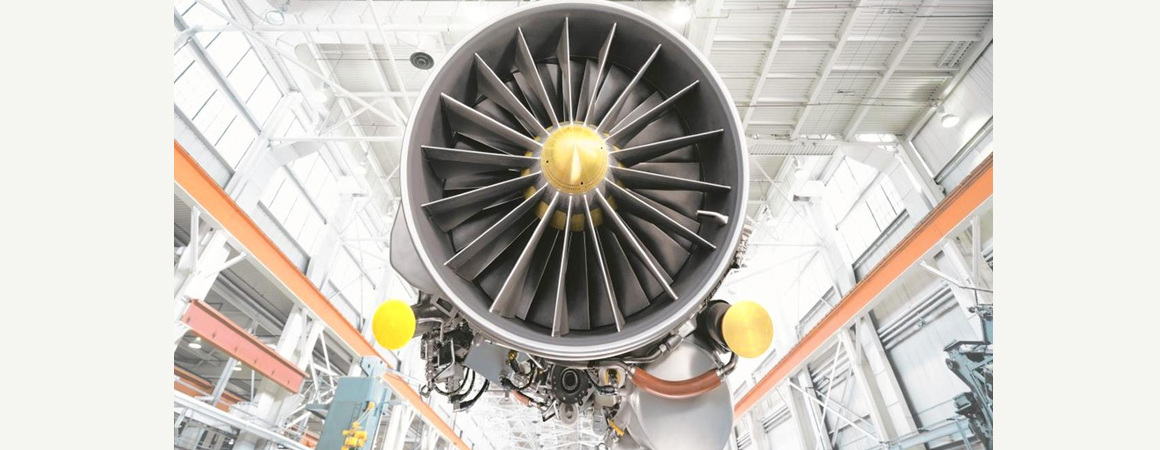It will open up the possibility of technology transfer for heavier engine to power a larger fighter aircraft; the 2012 deal had 58% technology transfer, says official, adding that current agreement reflects the level of trust India evokes in the U.S. and the strategic priorities that the countries share
The jet engine deal with U.S. is an “almost done” deal and will see 80% technology transfer by General Electric (GE) to Hindustan Aeronautics Limited (HAL). This will include critical technologies. The first engine will roll out three years after the contract is ready, according to a senior Defence Ministry official.
A previous ‘Engine Development Agreement’ in 2012 between GE and HAL for the F414 engine had 58% technology transfer, the official stated.
Groundbreaking
A factsheet issued by the White House on the bilateral meetings, described the GE proposal to jointly produce the F414 Jet Engine in India as “groundbreaking”, adding that a manufacturing license agreement has been submitted for Congressional notification.
“It will take three years for the first engine to roll out once the contract is signed. The 80% technology transfer to HAL is of critical importance. Such a transfer has not happened before and shows the level of trust India evokes in the US,” a senior defence source said on the Memorandum of Understanding (MoU) between GE and HAL to manufacture F414 engines for the Light Combat Aircraft (LCA)-MK2 in India. “Except for a small component, the F-414-INS6 engine will entirely be manufactured in India.”
“This trailblazing initiative to manufacture F-414 engines in India will enable greater transfer of US jet engine technology than ever before,” the joint statement issued after talks between Prime Minister Narendra Modi and President Joe Biden said.
Critical technologies
Some of the key technologies that would be transferred to India include special coatings for corrosion; casting, machining and coating for Single Crystal for turbine blades; casting, machining and coating of nozzle guide vanes and other hot parts; blisk machining; forging/ power metallurgy discs for turbine; machining of thin walled titanium casing; friction inertia welding for fan and after burner; Polymer Matrix Composites (PMC) for bypass polymer duct; Ceramic Matrix Composites (CMC) for LPNGV, flaps; laser drilling technology for combustor; bottle boring of shafts.
Timeline
On the timeline, Foreign Secretary Vinay Kwatra said that the US Congress would have to approve the deal which involves two separate legislations: Export Administration Regulations (EAR) and International Traffic in Arms Regulations (ITAR), and that some of the spadework had been completed during the Strategic Trade Dialogue he participated in earlier this month in Washington.
“Given that it is crucial to address the regulatory ecosystem, which intersects with technology cooperation, India and US recently held the first meeting of the strategic trade dialogue. The whole idea behind the strategic trade dialogue is that we look at regulatory issues more in terms of finding ways to enable our technology cooperation.” Mr. Kwatra said that the Jet engine tech transfer deal was one of the “strong, strategic and shared priorities” for both PM Modi and President Biden.
While the final cost is yet to be worked out, the official said the costing is indexed to the 2012 agreement based on which the current cost for 99 engines should be under $1bn.
Payload boost
The F414 will significantly enhance the capability of the LCA-MK2 and engines for prototype and testing are already available. As reported by The Hindu earlier, the LCA-Mk2 will be 1350mm longer featuring canards and a payload of 6500kgs compared with 3500kgs for the Mk1 and MK1A.
Around 120-130 LCA-MK2 jets are likely to be produced. A final decision has to be taken by the Defence Acquisition Council headed by Defence Minister Rajnath Singh, who has been pushing the project towards faster execution, officials said. The official noted that they are still in talks for co-development of a 110KN engine to power the Advanced Medium Combat Aircraft (AMCA)-MK2. This F414 deal makes GE the frontrunner for the deal, though a final decision is yet to be taken.
Approval process
The defence official said that in addition to US Congressional approval, there are some commercial terms that are yet to be finalised. The official said it will result in shorter turnaround time for maintenance, repair and overhaul as well as access to new generation technologies which will percolate to other sectors. The deal also shows that the US trusts our Intellectual Property Rights (IPR) regime and that the technology would remain secure. The US has showed confidence in our military systems also, the official added.
The Cabinet Committee on Security (CCS) has already approved the development of the LCA-Mk2 at a total development cost of ₹9000 crore and roll out of the first prototype is expected by 2024.
Jet engine deal ensures 80% technology transfer to HAL; first engine in three years
It will open up the possibility of technology transfer for heavier engine to power a larger fighter aircraft; the 2012 deal had 58% technology transfer, says official, adding that current agreement reflects the level of trust India evokes in the U.S. and the strategic priorities that the countries share
The jet engine deal with U.S. is an “almost done” deal and will see 80% technology transfer by General Electric (GE) to Hindustan Aeronautics Limited (HAL). This will include critical technologies. The first engine will roll out three years after the contract is ready, according to a senior Defence Ministry official.
A previous ‘Engine Development Agreement’ in 2012 between GE and HAL for the F414 engine had 58% technology transfer, the official stated.
Groundbreaking
A factsheet issued by the White House on the bilateral meetings, described the GE proposal to jointly produce the F414 Jet Engine in India as “groundbreaking”, adding that a manufacturing license agreement has been submitted for Congressional notification.
“It will take three years for the first engine to roll out once the contract is signed. The 80% technology transfer to HAL is of critical importance. Such a transfer has not happened before and shows the level of trust India evokes in the US,” a senior defence source said on the Memorandum of Understanding (MoU) between GE and HAL to manufacture F414 engines for the Light Combat Aircraft (LCA)-MK2 in India. “Except for a small component, the F-414-INS6 engine will entirely be manufactured in India.”
“This trailblazing initiative to manufacture F-414 engines in India will enable greater transfer of US jet engine technology than ever before,” the joint statement issued after talks between Prime Minister Narendra Modi and President Joe Biden said.
Critical technologies
Some of the key technologies that would be transferred to India include special coatings for corrosion; casting, machining and coating for Single Crystal for turbine blades; casting, machining and coating of nozzle guide vanes and other hot parts; blisk machining; forging/ power metallurgy discs for turbine; machining of thin walled titanium casing; friction inertia welding for fan and after burner; Polymer Matrix Composites (PMC) for bypass polymer duct; Ceramic Matrix Composites (CMC) for LPNGV, flaps; laser drilling technology for combustor; bottle boring of shafts.
Timeline
On the timeline, Foreign Secretary Vinay Kwatra said that the US Congress would have to approve the deal which involves two separate legislations: Export Administration Regulations (EAR) and International Traffic in Arms Regulations (ITAR), and that some of the spadework had been completed during the Strategic Trade Dialogue he participated in earlier this month in Washington.
“Given that it is crucial to address the regulatory ecosystem, which intersects with technology cooperation, India and US recently held the first meeting of the strategic trade dialogue. The whole idea behind the strategic trade dialogue is that we look at regulatory issues more in terms of finding ways to enable our technology cooperation.” Mr. Kwatra said that the Jet engine tech transfer deal was one of the “strong, strategic and shared priorities” for both PM Modi and President Biden.
While the final cost is yet to be worked out, the official said the costing is indexed to the 2012 agreement based on which the current cost for 99 engines should be under $1bn.
Payload boost
The F414 will significantly enhance the capability of the LCA-MK2 and engines for prototype and testing are already available. As reported by The Hindu earlier, the LCA-Mk2 will be 1350mm longer featuring canards and a payload of 6500kgs compared with 3500kgs for the Mk1 and MK1A.
Around 120-130 LCA-MK2 jets are likely to be produced. A final decision has to be taken by the Defence Acquisition Council headed by Defence Minister Rajnath Singh, who has been pushing the project towards faster execution, officials said. The official noted that they are still in talks for co-development of a 110KN engine to power the Advanced Medium Combat Aircraft (AMCA)-MK2. This F414 deal makes GE the frontrunner for the deal, though a final decision is yet to be taken.
Approval process
The defence official said that in addition to US Congressional approval, there are some commercial terms that are yet to be finalised. The official said it will result in shorter turnaround time for maintenance, repair and overhaul as well as access to new generation technologies which will percolate to other sectors. The deal also shows that the US trusts our Intellectual Property Rights (IPR) regime and that the technology would remain secure. The US has showed confidence in our military systems also, the official added.
The Cabinet Committee on Security (CCS) has already approved the development of the LCA-Mk2 at a total development cost of ₹9000 crore and roll out of the first prototype is expected by 2024.






NO COMMENT